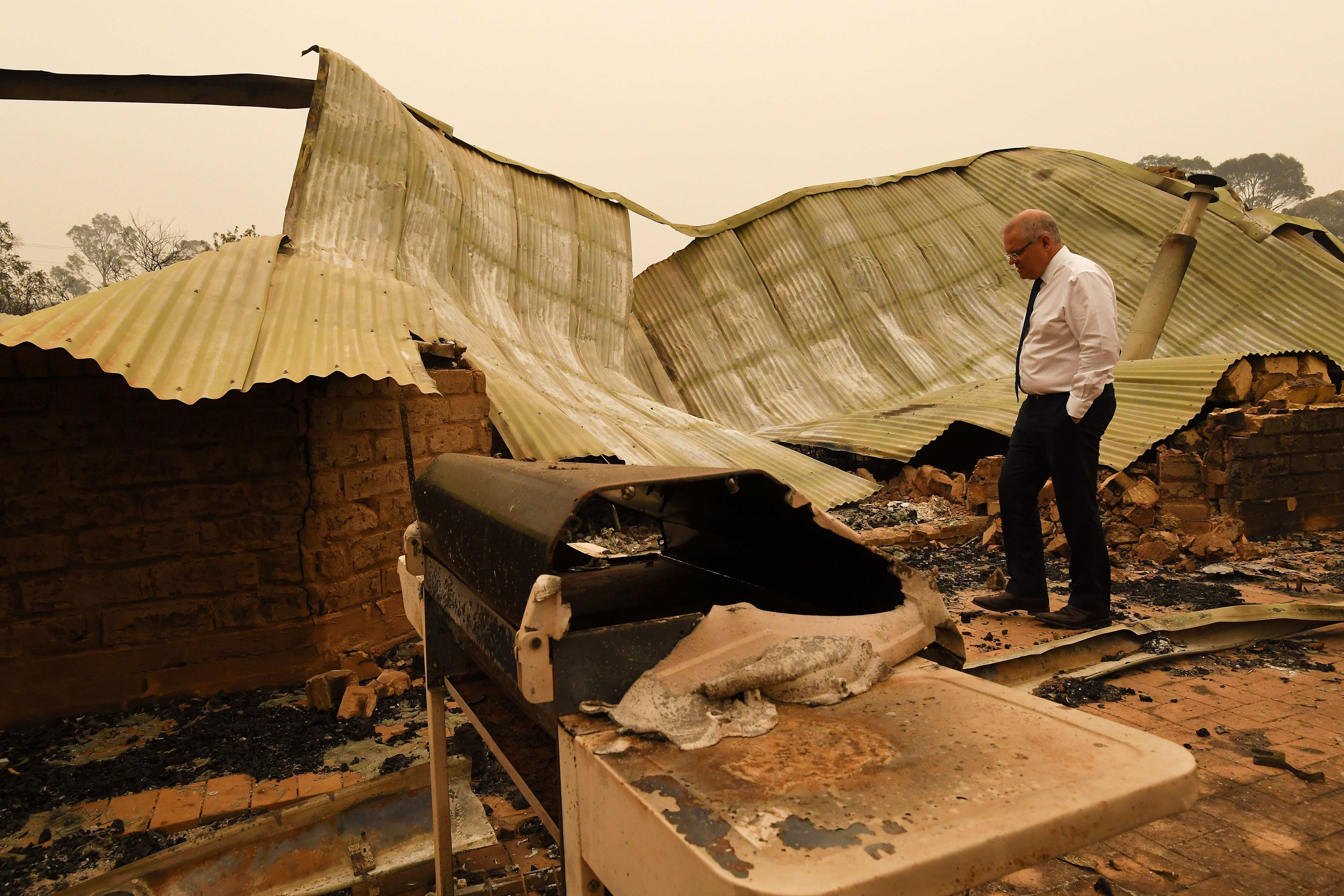Support for Australian PM plunges: Public support for Prime Minister Scott Morrison has plunged to a new low amid widespread dissatisfaction over his government's management of the months-long bushfire disaster. Morrison's approval rating dropped 8 percent in the last month, hovering at 37 percent, according to a Newspoll survey. The poll – taken after the Prime Minister announced a $2 billion bushfire recovery fund to manage the infernos that have razed more than 27 million acres of land – suggests that, for many Australians, the government's response is "too little too late." "MISSING" posters featuring a Hawaiian-shirt clad Morrison have been plastered around Australia– a reference to his decision to vacation in Hawaii last month as fires ravaged the country. Morrison has also been criticized for refusing to compensate volunteers who bear the brunt of firefighting, though he eventually acquiesced. Australia's next election is still two years away: Will Morrison be able to weather the political storms or will public resentment over his handling of the crisis remain in the public consciousness?
A worrisome outcome for China in Taiwan: Taiwan's president, Tsai Ing-wen, won 57 percent of the vote in elections on Saturday, securing a second term in office. It was a stunning victory for the pro-independence politician, who just 12 months ago trailed in the polls – and a stunning rebuke for China's President Xi Jinping. Tsai's Democratic Progressive Party also held on to its majority in Taiwan's legislative assembly, beating back a challenge from the more China-friendly Kuomintang amid record turnout. The landslide victory for Tsai, who ran on a pro-sovereignty platform, is a clear sign of public resistance to Beijing's "one country, two systems" rhetoric after months of crackdowns on anti-government protests in Hong Kong. We're watching to see how Xi responds.
The death of a Sultan: By all accounts, Qaboos bin Said, Sultan of Oman, was a man of dignity and moderation. These qualities distinguished him as a determined peacemaker. He supported the 1979 peace deal between Egypt and Israel when no other Arab government would, and he hosted the first secret US-Iran talks in more than three decades. Those talks led to negotiations that ended in the Iran nuclear agreement now in shambles. But that's not why people across the Middle East will remember him. His true legacy is that, during his nearly 50-year rule, he used the country's oil wealth to lift Oman from medieval poverty to the digital age, created a sense of national identity in a place it had never existed, and advanced reforms that empowered Oman's women and girls.
What We're Ignoring
Billionaires bound for the moon: A 44-year-old Japanese internet billionaire who snagged a ticket to the moon on a spaceship built by Tesla founder Elon Musk is looking for that "special someone" to accompany him on the voyage. Yusaku Maezawa last week announced a new reality TV contest to find the perfect person to join him on his private lunar mission. We're ignoring this contest…unless he decides to take Carlos Ghosn, the fugitive French millionaire businessman who recently escaped from Japanese justice. Sadly, Maezawa insists his contest is open only to "single women aged 20 or over," and Ghosn is no one's idea of "arm candy."
